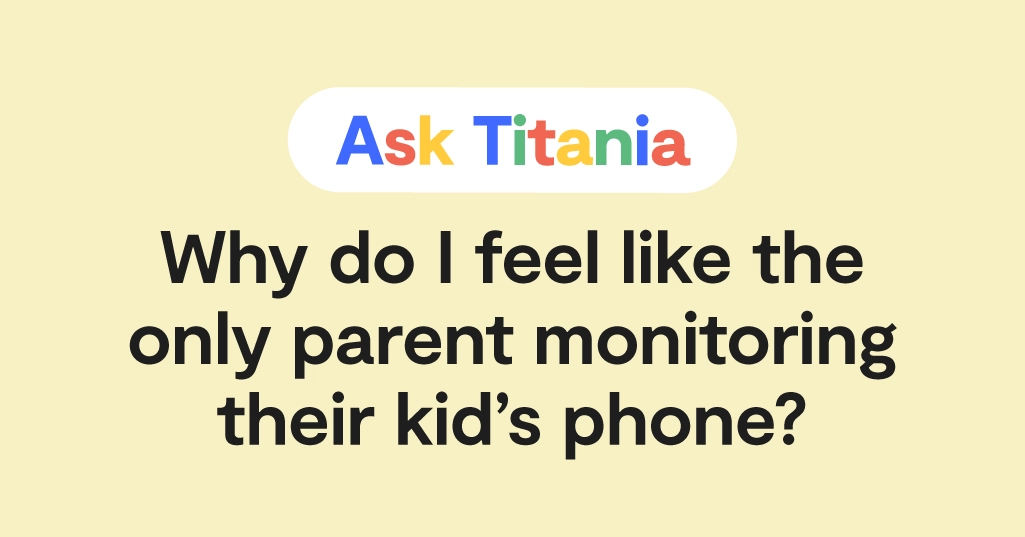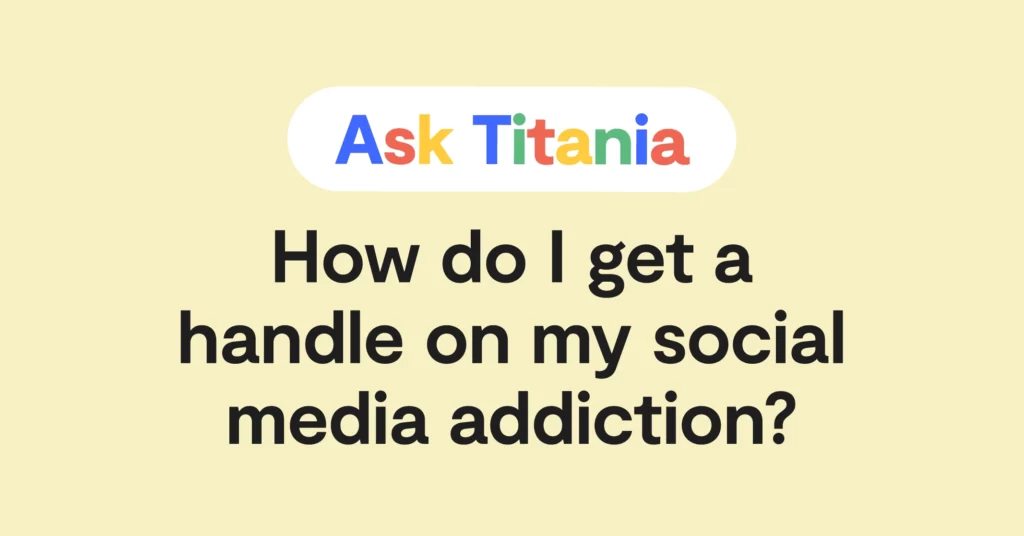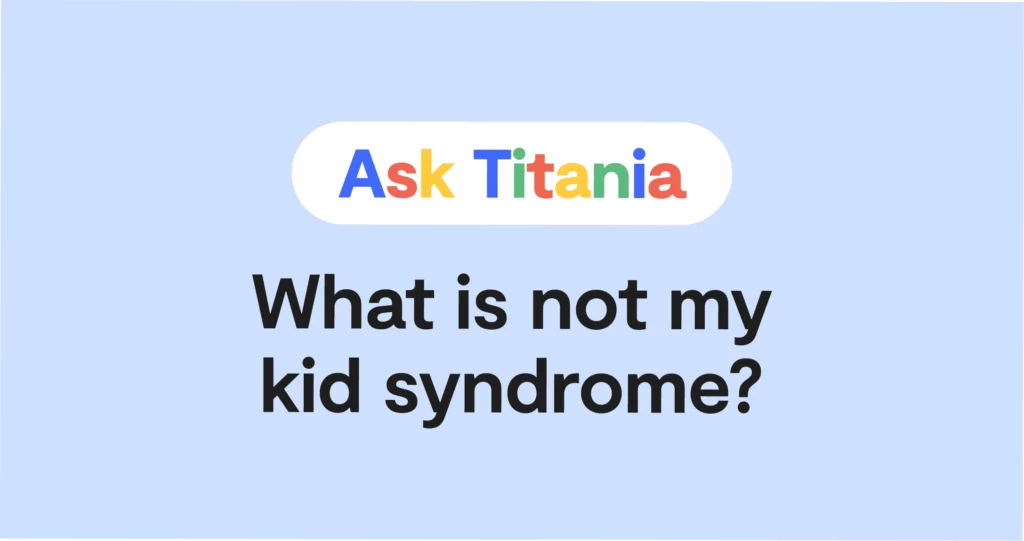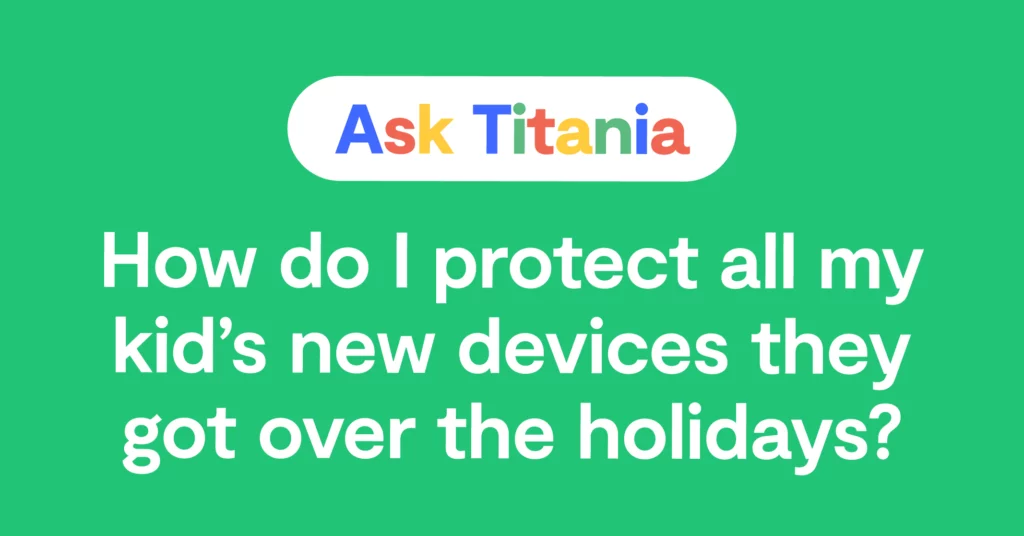Dear Titania,
My 14-year-old has an Android, and we monitor it with Bark. He’s fine with it, but he insists that none of his friends’ phones are monitored. When I mention it to other parents in my social circle, they say they use Google Family Link or Apple Screen Time to block adult websites and that’s it. Am I being too protective? Why do I feel like I’m the only one around me invested in keeping my kid safer online?
Signed,
Lonely Being the Only Parent Monitoring
Dear Lonely Being the Only Parent Monitoring,
First off, I want to commend you for caring enough to actually spend time monitoring his online activities. This transition to high school for a child is one of the first big steps into a larger world, and a lot of things will be changing.
And I assure you — even though you may feel like the only parent monitoring right now, you most definitely aren’t. This summer before the new year school starts there’s a change in the air, and you can almost feel it.
Parents are finally starting to wake up and realize that we have to be doing more to protect our kids. Jonathan Haidt’s recent best-seller The Anxious Generation has been sounding the alarm about the dangers that cellphones pose to this generation, and it’s finally getting through to people.
Just last week, the U.S. surgeon general published an op-ed in The New York Times calling for warning labels on social media platforms, as even he — the nation’s top doctor — is unsure of how to navigate their dangers with his two young kids.
So no, you’re not alone in your decision to try your best to teach your child responsible tech use and to give him a digital safety net. But I thought I’d explain some of the reasons that not everybody may be on the same page as us. Let’s go.
Many Parents Tend to be Either Proactive or Reactive
I’ve spoken to thousands of parents over the years about kids and parental controls, and I’ve found there’s two main groups: proactive and reactive.
Proactive parents take precautions way before anything can possibly happen by using monitoring, blocking, and screen time tools. Of course, some kids may never get into trouble (though even the most unsuspecting kids can wind up in over their head), but proactive parents take the “better safe than sorry” approach.
Reactive parents, on the other hand, turn to parental controls when something negative happens — like an inappropriate conversation with a stranger, accessing sexual content, or sending explicit images online. When this happens, they tighten up on their kid’s online access, which can be a little harder after a child has experienced fewer restrictions. It’s very hard to put that toothpaste back in the tube.
In today’s digital age, I highly recommend that all parents be proactive when it comes to monitoring. Even if you’re not worried about your kid, the harmful things that they can be exposed to (even accidentally!) and the dangerous strangers that exist on the internet are still a very real threat.
There’s a Huge Digital Divide Between Generations Right Now
The generation gap between parents and children has always existed, but the rapid evolution of technology has widened this divide. Right now, there are parents and caregivers of kids that include Baby Boomers, Gen X, and elder Millennials. Even between these three groups, there’s a wildly different approach to technology and change. When you add in Gen Alpha, the generation of most kids today, the divide looms even larger.
Some parents just won’t be able to keep up with the latest developments, new trends, and ever-evolving platforms. Our children, on the other hand, are digital natives, seamlessly integrating these technologies into their daily lives. Saying “no” to a certain app may not seem like a huge deal to us, but for kids it can feel absolutely world-shattering.
The State of Parental Controls Today
One thing I see constantly is that many parents simply rely on the free software that comes with smartphones — mainly Apple Screen Time and Google Family Link. They’re free for a reason, and they’re not enough to give you actual peace of mind that your child is safer online. Apple Screen Time in particular is known for being particularly buggy and easy for kids to find screen time workarounds. And neither of them offer advanced content monitoring.
A lot of parents unfortunately don’t know (yet) that Bark is the best option on the market for comprehensive parental controls. Our monitoring strikes a balance between safety (with handy alerts for potential dangers) and privacy (parents don’t get access to every single thing on a child’s phone, unlike the trust-destroying spyware products out there).
The Benefits of Monitoring
In case you needed a little refresher and reminder about why monitoring is one of the best decisions you can make as a parent, here are just a few reasons to remind you that you're making the right choice. It lets you:
Spot issues early
By staying tuned into your child's online interactions, you can quickly catch and address problems like cyberbullying or exposure to inappropriate content. It’s all about nipping issues in the bud before they escalate and having hard but important conversations, which are essential to growing up.
Teach smart digital habits
Monitoring isn’t just about watching over them — it’s also a chance to teach your child how to use their phone responsibly, which is something they’ll benefit from for the rest of their life. You can guide them on digital etiquette and help them understand the importance of maintaining a positive online presence.
Help keep them safe
Knowing who your child is interacting with and what they're sharing online helps protect them from potential dangers like online predators, bullying, sexual content, and more. It's all about creating a safer digital environment for them to explore and grow with guardrails.
Need More Support? Bark Can Help
I see you’re already using Bark, which is one of the best things you can be doing as a parent, no matter what everyone may or may not do. And rest assured your child is in good hands, as we help protect around 7 million kids across the nation. But we also have a ton of other resources to support you! Here are just a few that you may find helpful:
- Join Parenting in a Tech World, our Facebook group of over half a million parents asking questions, providing experience, and supporting each other through digital parenting.
- Check out the Bark blog from time to time — we’re constantly publishing articles that parents and kids alike can learn from.
- Sign up for our Overwhelmed to Empowered newsletter and get weekly parenting tips straight to your inbox.
Keep up the good work, you’re on the right track. You’ve got this!
Read more
Bark helps families manage and protect their children’s digital lives.






